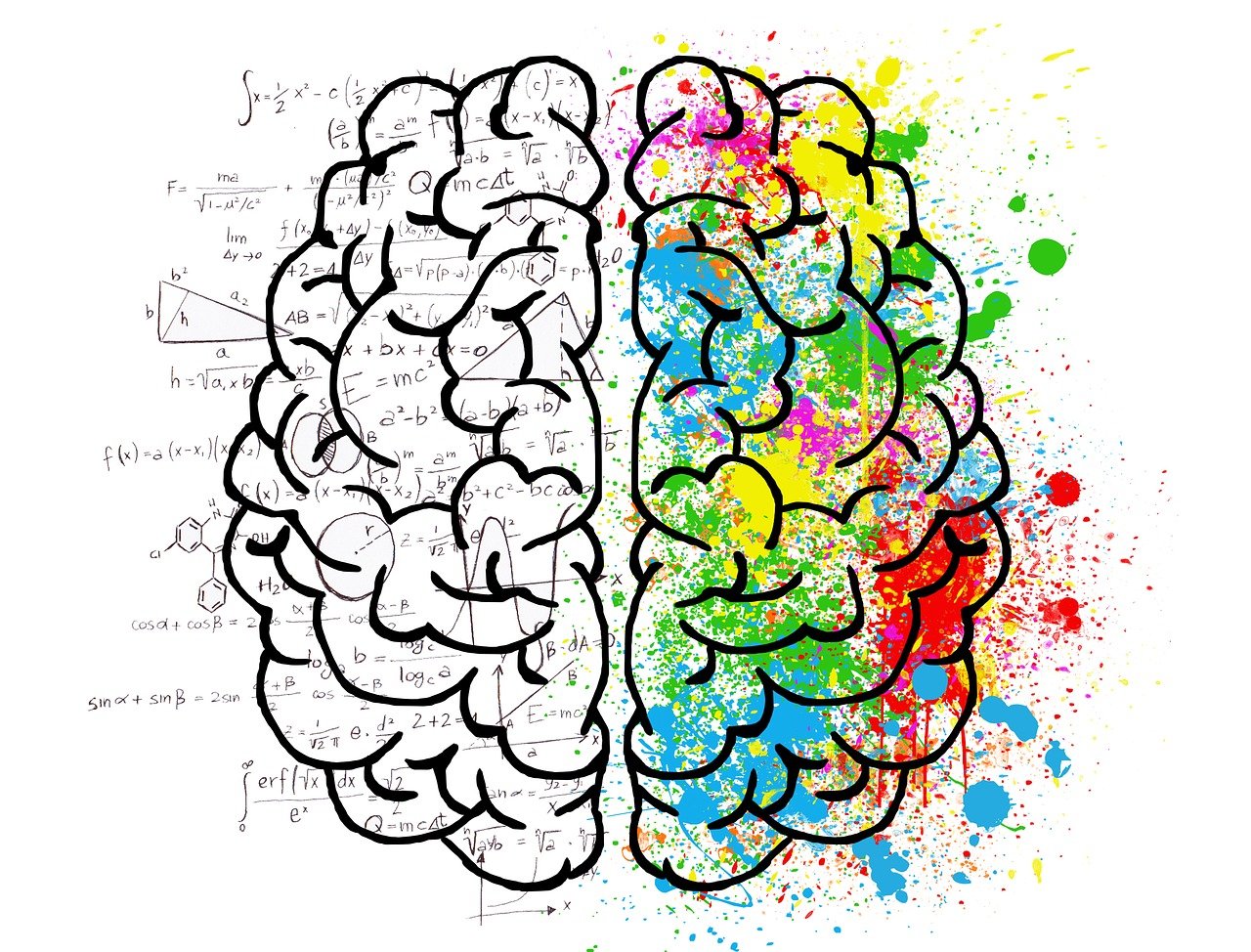Last updated on September 27th, 2025 at 08:28 pm

Intro
Mental health care has become more widely recognized over the past 200 years. However, in recent decades, mental health has increasingly been discussed in ways that emphasize hype and attention rather than genuine struggles.
That being said, mental health is undeniably real. We all have a mind, thoughts, and emotions, and maintaining a healthy mind is essential to living the life God designed for us.
In this post, we’ll explore five key components of mental health care—habits, thought life, relationships, physical activity, and healthy eating—and examine what God has to say about each of them. Understanding these areas and applying biblical wisdom can have a tremendous impact on your life.
So let’s talk about it!
Habits
1 Thessalonians 5:16-18 – “Rejoice always, pray without ceasing, give thanks in all circumstances; for this is the will of God in Christ Jesus for you.”
According to the American Psychological Association, habits make up about 43% of your daily life. Habits relate to your mental health because they don’t just involve things you do but also ways that you think.
Every day, the things you do, hear, and see trigger habits in your body, but also in your mind. The things you see trigger certain pathways in your thoughts. The things you hear, touch, taste, and smell do the same thing.
Habits are a very powerful force. They can either be good or bad, and in most cases, it is quite difficult to break a habit once it is formed. However, it is not impossible, especially with the help of the Holy Spirit.
The reason why I chose 1 Thessalonians 5:16-18 to speak on habits is because it tells us to rejoice always and give thanks in all circumstances. That sounds like a habit to me!
God wants us to make it a habit to praise Him and to thank Him. He knows that when we develop this habit, our lives will be full of the fruit of this practice. When praise and thanks to God are on our minds, they will pour out into the rest of our lives.
Gratitude is such an essential aspect of mental health.
Thought Life
Philippians 4:6-7 – “Do not be anxious about anything, but in everything by prayer and supplication with thanksgiving let your requests be made known to God. And the peace of God, which surpasses all understanding, will guard your hearts and your minds in Christ Jesus.”
1 Peter 5:7 – “Casting all your anxieties on him, because he cares for you.”
Our thought life is of utmost importance when it comes to our mental health. If our thoughts about ourselves and others are negative, then our mental health suffers. Conversely, having positive thoughts towards ourselves and others leads to better mental well-being.
In these verses, God tells us that anxiety should never be a part of our lives. This does not exclude healthy stress, but it does mean that anxiousness and worrying should not be in the life of a Christian. How is this possible? By trusting God! And you trust God by drawing closer to Him.
The latter half of Philippians 4:6-7 says that rather than being anxious, we should pray and give thanks to God. Drawing near to God, thanking Him, and seeking Him is the answer to anxiety.
If you don’t want to be anxious anymore, when it starts to come, simply pray, seek Him, and thank Him. See what happens to your anxiety. “And the peace of God, which surpasses all understanding, will guard your hearts and your minds in Christ Jesus.”
Relationships
1 Corinthians 15:33 – “Do not be deceived: ‘Bad company ruins good morals.’”
God cares about the relationships we have. He is invested in our friendships, romantic relationships, family connections, and even professional interactions. One reason the people we choose to surround ourselves with are so important is their effect on our mental health. When we choose to be close to immoral and unwise individuals, our morals and well-being can be negatively influenced.
As Christians, we must choose to be close to those who are godly and loving, rather than unrighteous and impure. When we do this, our morals will remain pure and true to the Word of God, rather than becoming compromised.
Physical Activity
1 Timothy 4:8 – “For while bodily training is of some value, godliness is of value in every way, as it holds promise for the present life and also for the life to come.”
Believe it or not, physical activity is actually good for your mental health! When we exercise, our brain releases chemicals that promote joy, peace, and relaxation. Contracting our muscles sends out chemicals called myokines, which travel to the brain and enhance mood. Exercise also increases oxygen flow to the brain, improving function.
In 1 Timothy 4:8, God acknowledges that bodily training has value. One of its key benefits is its positive impact on mental health. However, we must always remember that godliness is even more important than physical appearance.
Another crucial aspect of mental health is sleep. Getting enough rest is essential for proper brain function.
Healthy Eating
1 Corinthians 10:31 – “So, whether you eat or drink, or whatever you do, do all to the glory of God.”
Eating healthy absolutely affects your mental health! When we don’t get the nutrients our brains need, they struggle to function at full capacity. A proper balance of macronutrients—carbs, proteins, and fats—is necessary for optimal brain function.
We see in 1 Corinthians 10:31 that God desires us to honor Him in all that we do, even in our eating habits. Healthy choices may look different for each individual, so be careful not to compare yourself to others. Instead, focus on honoring God through your personal choices while keeping your relationship with Him at the center.
More Bible Verses on Mental Health
- 1 Peter 5:8 – “Be sober-minded; be watchful. Your adversary the devil prowls around like a roaring lion, seeking someone to devour.”
- Matthew 6:22-23 – “The eye is the lamp of the body. So, if your eye is healthy, your whole body will be full of light, but if your eye is bad, your whole body will be full of darkness.”
- Proverbs 25:28 – “A man without self-control is like a city broken into and left without walls.”
- Galatians 5:22-24 – “But the fruit of the Spirit is love, joy, peace, patience, kindness, goodness, faithfulness, gentleness, self-control.”
- Romans 12:2 – “Do not be conformed to this world, but be transformed by the renewal of your mind.”
Conclusion
Taking care of our mental health is something God wants us to do. When we take care of our minds, we honor God. He has given us tools in His Word to help our minds function as they should—constant prayer, continual gratitude, godly relationships, and more. God cares about every part of our lives, and He desires to be involved in them. That is exactly what He created us for!
So let’s honor God by taking action to maintain healthy minds, thoughts, habits, and overall mental well-being.
Stick around for my next post: “What Does God Say About Spiritual Health?” And if you haven’t already, check out my last post on “What does God say about healing?”

References
- Bible Gateway. (n.d.). BibleGateway.com. Retrieved from https://www.biblegateway.com/
- Science Museum. (n.d.). Mental health: The science behind it. Science Museum. https://www.sciencemuseum.org.uk/objects-and-stories/mental-health
- American Psychological Association. (2020, November). Good habits boost performance at work. Monitor on Psychology. https://www.apa.org/monitor/2020/11/career-lab-habits
- Greenwood, K. (2022, September). Why working your muscles can be a powerful antidepressant. Psychology Today. https://www.psychologytoday.com/us/blog/the-healthy-journey/202209/why-working-your-muscles-can-be-a-powerful-antidepressant



